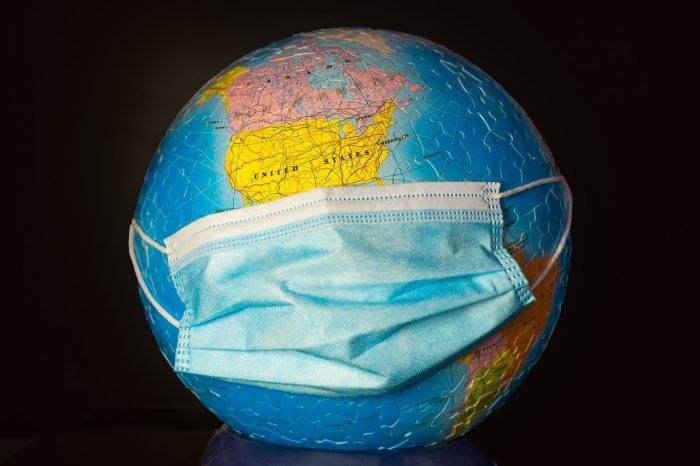
A researcher in the College of Literature, Science, and the Arts (LSA) is pioneering two separate, ongoing efforts for measuring and forecasting COVID-19: pandemic modeling and a risk tracking site.
The projects are led by Sabrina Corsetti, a senior undergraduate student pursuing dual degrees in honors physics and mathematical sciences, and supervised by Thomas Schwarz, associate professor of physics.
The modeling uses a machine learning algorithm that can forecast future COVID-19 cases and deaths. The weekly predictions are made using the ARC-TS Great Lakes High-Performance Computing Cluster, which provides the speed and dexterity to run the modeling algorithms and data analysis needed for data-informed decisions that affect public health.
Each week, 51 processes (one for each state and one for the U.S.) are run in parallel. “Running all 51 analyses on our own computers would take an extremely long time. The analysis places heavy demands on the hardware running the computations, which makes crashes somewhat likely on a typical laptop. We get all 51 done in the time it would take to do 1,” said Corsetti. “It is our goal to provide accurate data that helps our country.”
The predictions for the U.S. at the national and state levels are fed into the COVID-19 Forecasting Hub, which is led by the UMass-Amherst Influenza Forecasting Center of Excellence based at the Reich Lab. The weekly predictions generated by the hub are then read out by the CDC for their weekly forecast updates Center for Disease Control (CDC) COVID-19 Forecasting Hub.
The second project, a risk tracking site, involves COVID-19 data-acquisition from a Johns Hopkins University repository and the Michigan Safe Start Map. This is done on a daily basis, and the process runs quickly. It only takes about five minutes, but the impact is great. The data populates the COVID-19 risk tracking site for the State of Michigan that shows by county the total number of COVID-19 cases, the average number of new cases in the past week, and the risk level.
“Maintaining the risk tracking site requires us to reliably update its data every day. We have been working on implementing these daily updates using Great Lakes so that we can ensure that they happen at the same time each day. These updates consist of data pulls from the Michigan Safe Start Map (for risk assessments) and the Johns Hopkins COVID-19 data repository (for case counts),” remarked Corsetti.
“We are proud to support this type of impactful research during the global pandemic,” said Brock Palen, director of Advanced Research Computing – Technology Services. “Great Lakes provides quicker answers and optimized support for simulation, machine learning, and more. It is designed to meet the demands of the University of Michigan’s most intensive research.”
ARC-TS is a division of Information and Technology Services (ITS).
Related information
